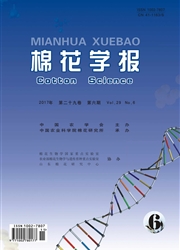

 中文摘要:
中文摘要:
以不同农药为主的防治策略对棉铃虫和小菜蛾等农业害虫的控制卓有成效,但易产生害虫抗药性问题。害虫抗药性与细胞色素P450酶系、酯酶、钙粘蛋白等酶或受体的生化与分子机理相关。RNA干扰(RNA in-terference,简称RNAi)作为分子生物学领域中功能基因及基因组研究的一种强有力工具,已逐渐用于昆虫抗药性相关基因的敲除研究并鉴定其功能。本文围绕RNAi的作用机理及其对昆虫抗药性相关基因的沉默研究展开综述,旨在为农业害虫及其抗药性治理提供新思路与新途径。
 英文摘要:
英文摘要:
There have been enormous economical losses in agriculture caused by devastating insect pests,such as cotton bollworm Helicoverpa armigera(Hübner) and diamondback moth Plutella xylostella(L.),etc.The pests could be effectively controlled by insecticides,however many kinds of the pests have showed serious resistance to different insecticides.Studies have proved that insect resistance related to the detoxification enzymes or receptors including cytochrome P450 enzymes,esterases and cadherin proteins,etc.Knockout of genes related with resistance in insect pests has been carried out by RNA interference (RNAi) recently,which is a powerful tool in molecular biology for researches on functional genes and genomes.This review focuses on the mechanisms of RNAi and its applications in silencing resistance-related genes in insects in vivo,aiming at providing novel ideas and approaches for insect controlling and resistant management in agricultural pests.
 同期刊论文项目
同期刊论文项目
 同项目期刊论文
同项目期刊论文
 Knockdown of several components of cytochrome P450 enzyme systems by RNA interference enhances the s
Knockdown of several components of cytochrome P450 enzyme systems by RNA interference enhances the s 期刊信息
期刊信息
